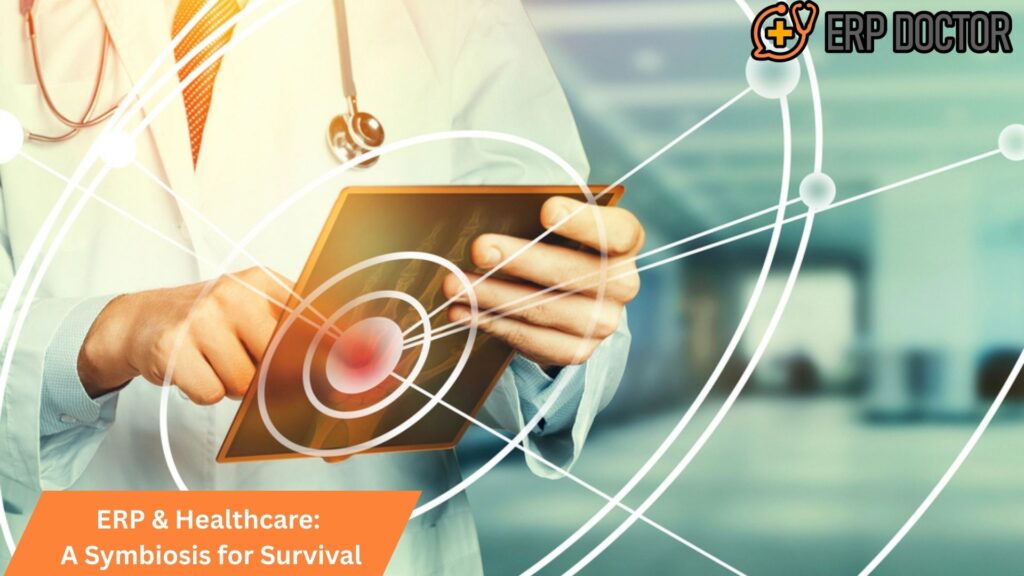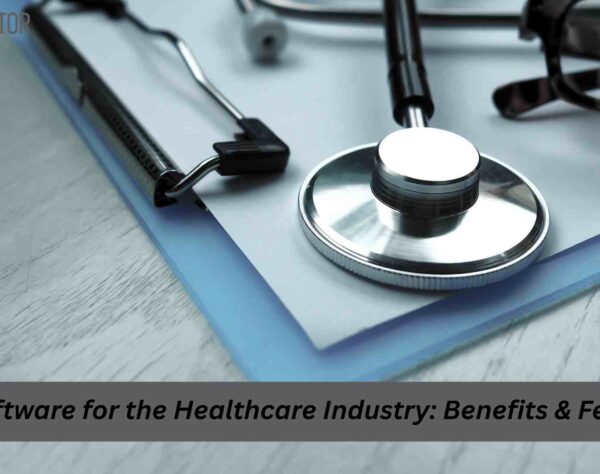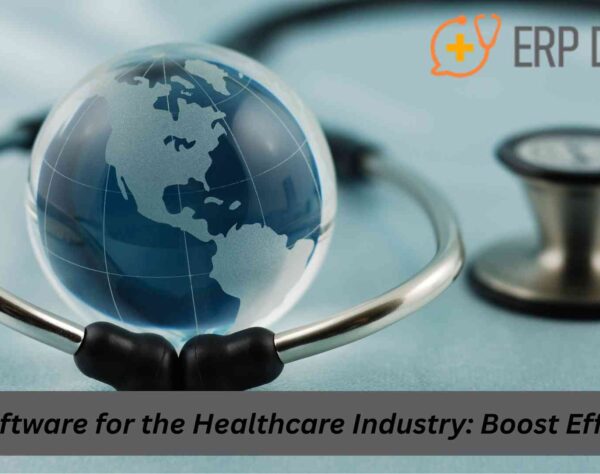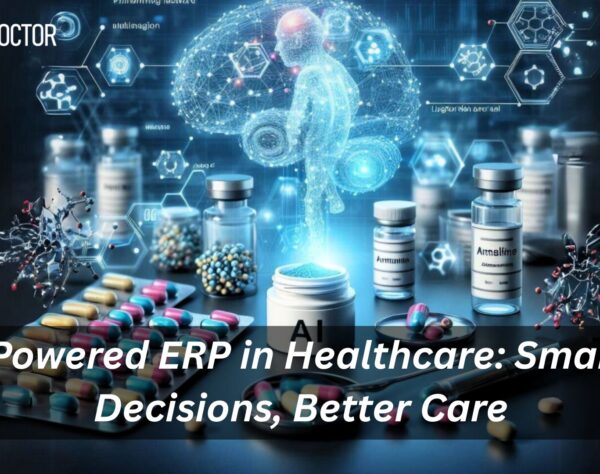
How ERP Supports the Healthcare Industry

ERP in Healthcare: The Invisible Pulse Driving Smarter Care
In the age of connected care, data-driven decisions, and digital-first hospitals, the collaboration between ERP and Healthcare has become less of a choice and more of a survival strategy. ERP (Enterprise Resource Planning) systems now act as the silent force behind every bed assignment, every patient bill, and every stocked medicine shelf. But this relationship goes deeper than technology—it’s a living, breathing symbiosis that keeps modern Healthcare systems alive, responsive, and future-ready.
This blog explores how ERP doesn’t just support Healthcare—it amplifies it. From enabling agile hospital management to powering preventive care and patient-centric workflows, ERP is the nervous system of today’s healing ecosystems.
From Healing to High-Performance: What ERP Means in Healthcare
Think of a hospital as an organism. Its organs—emergency rooms, labs, pharmacies, admin desks—must all function in harmony. ERP acts as the central nervous system, transmitting signals, synchronizing operations, and responding to external stimuli.
In Healthcare, ERP platforms unify scattered departments. Finance talks to HR, procurement aligns with surgical teams, and patient records meet billing—seamlessly. The outcome? A healthcare system that is faster, leaner, and more responsive to human needs.
Why Healthcare Can’t Thrive Without ERP Anymore
The demands on the Healthcare industry are rising: Aging populations, chronic disease management, personalized medicine, cost pressures, and patient expectations are pushing hospitals to do more—with less. That’s where ERP steps in—not just as an IT system, but as a survival toolkit.
Key Roles ERP Plays in Healthcare:
- Operational Harmony: Unifies supply chain, finance, workforce, and patient data.
- Compliance Confidence: Auto-generates reports for HIPAA, NABH, HL7, and more.
- Scalable Care Models: Supports telehealth, homecare, and multi-location expansion.
- Predictive Analytics: Helps forecast trends in admission rates, inventory needs, and patient outcomes.
- Crisis Readiness: Provides agility to adapt quickly to emergencies like pandemics.
Beyond Administration: ERP’s Role in Clinical Excellence
While many see ERP as a back-office tool, modern platforms go much further. Integrated with EHR/EMR systems, ERP enables better clinical decisions by providing real-time insights into patient data, resource availability, and treatment costs.
Examples in Action:
- Real-time Lab & Pharmacy Sync: ERP systems ensure labs don’t delay treatments and pharmacies don’t face shortages.
- AI-Driven Decision Support: AI-integrated ERP can recommend staffing adjustments during patient surges.
- Surgical Scheduling Optimization: ERP matches surgeons’ availability with OT slots, improving utilization rates.
ERP in Healthcare: Built for Every Layer of the Industry
Whether you’re a standalone diagnostic center or a 10-hospital chain, ERP adapts to your scale and complexity.
- For Clinics & Labs: Automate patient registration, sample tracking, and reporting.
- For Multispecialty Hospitals: Integrate clinical, administrative, and financial workflows.
- For Pharma & Medical Devices: Align inventory with demand forecasts and reduce wastage.
- For NGOs & Trusts: Monitor budget, impact, and supply utilization across multiple field sites.
Customizable, Compliant, and Cloud-Ready
Today’s ERP solutions for Healthcare are not rigid. They are designed for:
- Cloud Hosting for anytime-anywhere access
- Mobile Dashboards for field healthcare workers
- Modular Rollouts that let you scale ERP piece by piece
- APIs & Integration Tools to work with your legacy or EMR systems
Moreover, data privacy and compliance are built in. From GDPR and HIPAA to local standards, ERP makes staying compliant a natural outcome—not a stressful task.
The Future of Healthcare Runs on ERP
As Healthcare evolves toward predictive, preventive, and personalized models, ERP will power this shift. Expect to see deeper AI analytics, IoT-connected medical devices feeding real-time data into ERP dashboards, and blockchain-enhanced patient records secured inside ERP ecosystems.
In essence, ERP is not just software—it’s the future infrastructure of healthcare intelligence.
Real-World Impact: ERP Success in Healthcare
“With ERP, we cut inventory costs by 22% and reduced surgical delays by 18%. It’s now our operational brain.” — Admin Head, Multi-Specialty Hospital, India
“We integrated finance, procurement, and HR across 5 rural clinics using a single ERP dashboard. Visibility has changed the game for us.” — Operations Lead, Healthcare NGO
These stories show that ERP is not theoretical—it’s transformative.
Final Pulse Check: Is Your Healthcare Business ERP-Ready?
- Are your systems disjointed or manually operated?
- Do audits take weeks instead of hours?
- Are patients or staff frustrated with process delays?
- Is scaling your operation a logistical nightmare?
If yes, then it’s time to embrace the ERP + Healthcare symbiosis.
📊 FAQs
1. How does ERP impact patient billing transparency?
ERP systems automate billing workflows, minimize errors, and provide real-time cost breakdowns for patients and providers.
2. Can ERP be used to improve appointment scheduling efficiency?
Yes, ERP integrates with calendars and patient management systems to reduce no-shows and optimize time slots.
3. What makes ERP better than standalone hospital management software?
ERP unifies all departments—finance, HR, inventory, and more—whereas standalone systems typically cover isolated tasks.
4. Is ERP useful in rural or low-resource healthcare setups?
Yes, cloud-based and modular ERP solutions are ideal for decentralized or resource-limited healthcare facilities.
5. Can ERP assist with insurance claim tracking and processing?
Absolutely. ERP systems track claims, rejections, payouts, and follow-up actions in a single view.
6. Does ERP help improve patient data security?
Yes, modern ERP platforms are equipped with encryption, role-based access, and audit trails to secure patient data.
7. How does ERP help in workforce optimization?
By aligning staff rosters, performance metrics, and workload insights, ERP ensures efficient manpower utilization.
8. Can ERP track and report environmental sustainability in hospitals?
Yes, some ERP platforms can monitor waste, energy usage, and help meet green compliance goals.
9. Is ERP suitable for mental health and rehabilitation centers?
Yes, ERP systems can be customized to manage therapy sessions, medications, outcomes, and documentation.
10. How does ERP support disaster preparedness in healthcare?
ERP enables real-time resource tracking, supply forecasting, and dynamic response coordination during crises.







